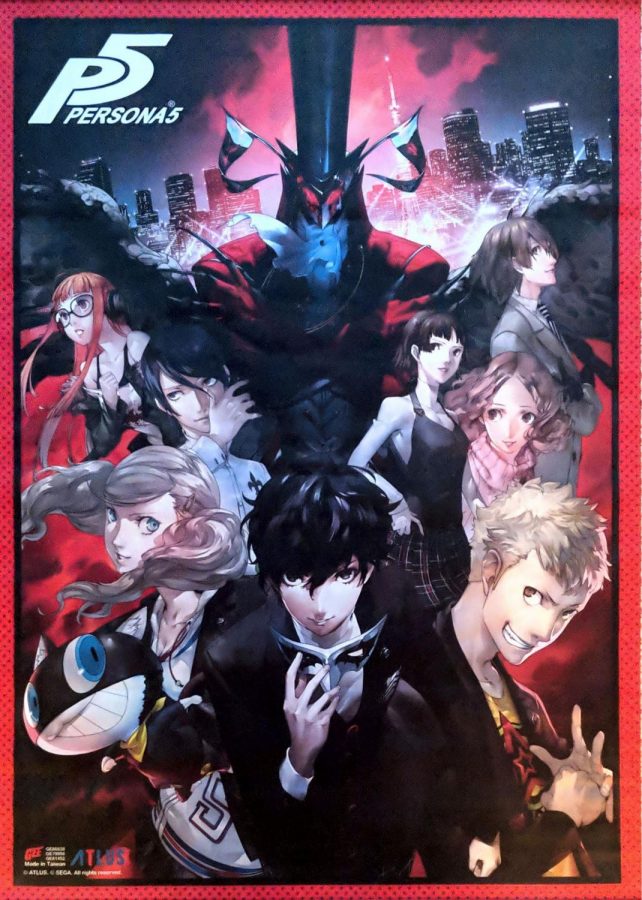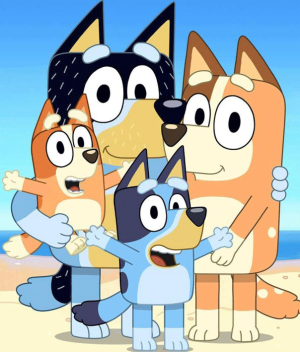Persona Fixation
February 26, 2021
As it turns out, I’ve been wanting to write an article on the Persona franchise for quite some time. Ever since I was introduced to the series with Persona 5 in 2017, I have been fascinated not only with the video game series as a whole but with the concept of the persona.
The Persona franchise was originally created as a spinoff of the much older Shin Megami Tensei franchise with the release of Revelations: Persona. While the first two main series entries for the Persona franchise were only moderate successes, the series reached a new stage of popularity with the release of Persona 3 for the PlayStation 2. This trend would continue with the release of Persona 4, along with several updated rereleases of both Persona 3 and Persona 4 and spin-off titles associated with both. However, it was only with the release of Persona 5 worldwide in 2017 that the series reached critical acclaim and much wider audiences.
Gameplay-wise, the main games from the Persona series (which excludes the spinoff dancing games, fighting games, and crossover dungeon crawling games) focus on the dual lifestyles of a protagonist and their band of fellow Persona users. In everyday life, the protagonist is a Japanese high school student. After school, however, the protagonist delves into other existences where they summon a Persona (typically based off of a mythological or historical figure) in order to fight against enemies known as Shadows. While the overall lore and origin for the Personas and Shadows tend to vary from game to game, this main idea stays relatively consistent.
So… What’s so fascinating about the Persona series? The answer is… a bit complicated. There are simply so many elements in each game that it can’t all be covered so easily. The Personas themselves are a complicated web of explanations, and the interplay they have with the overall story and characters makes that web even more widespread.
If it has to be said, it’s that web of connections itself that makes the games as endearing as they are. The Personas and Shadows are meant to be reflections of characters in the real world, and this realization is what makes the Persona users so wonderfully complex. This is only accentuated by the fact that each Persona user found in every game is entirely unique. The characters themselves – even the members of the supporting cast who aren’t Persona users – are also complex creations that are meant to be relatable and fully developed.
Then there’s the implementation of psychology. Aside from the series’ namesake, there are also uses of the collective unconscious and arcanas. The collective unconscious is another creation of Carl Jung, the psychologist who first coined the ideas for Personas. In the games, the collective unconscious tends to manifest as a separate metaphysical world. On the other hand, the arcana is best known for its appearance in Tarot decks, starting at 0 with “The Fool” and eventually rising to 21 with “The World.” In the games, each Persona and most characters whom the player can interact with are represented by one of these arcanas. All of these psychological concepts are things that I would never have learned about otherwise, had I never played the Persona games.
Ever since I joined Chatfield’s broadcasting team in 2019, I’ve been interested in talking about the Persona series. While I realize that not everybody is willing to put in a hundred hours for a single video game, I can note that Persona 3, Persona 4, and Persona 5 have been adapted into other forms of media. Persona 3 has been adapted into four movies. Persona 4 was adapted into an anime series lasting twenty-four episodes, then adapted a second time with the improved rerelease of Persona 4: Golden as a twelve-episode anime series. Lastly, Persona 5 was also adapted into an anime series, which acts as an excellent buffer for those who want the story but don’t necessarily wish to play the games themselves (since these games can be quite difficult at times). However, for those who are interested, I must note that nearly every Persona game is rated M for mature. It is entirely worth it, however. For a game series that discusses such serious topics as corruption and hidden selves, I can’t imagine the Persona series being censored in any way. That would take away from some of the charm that took me in so much in the first place.








